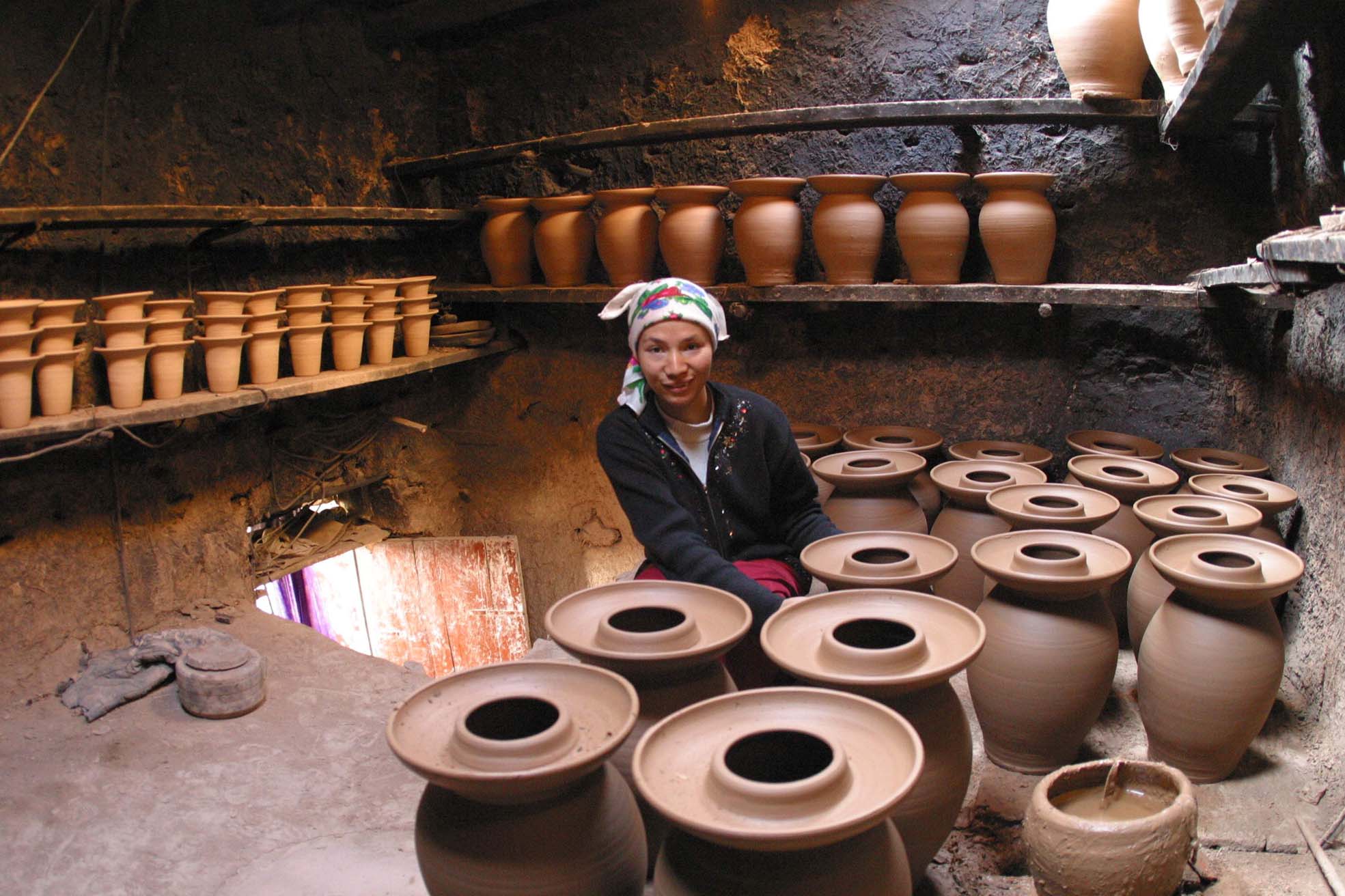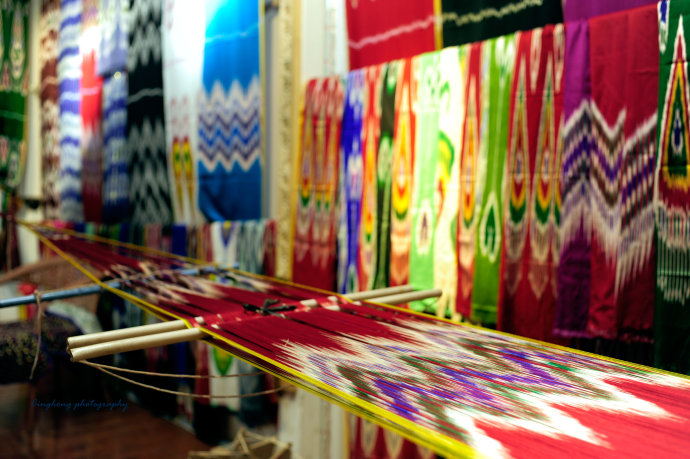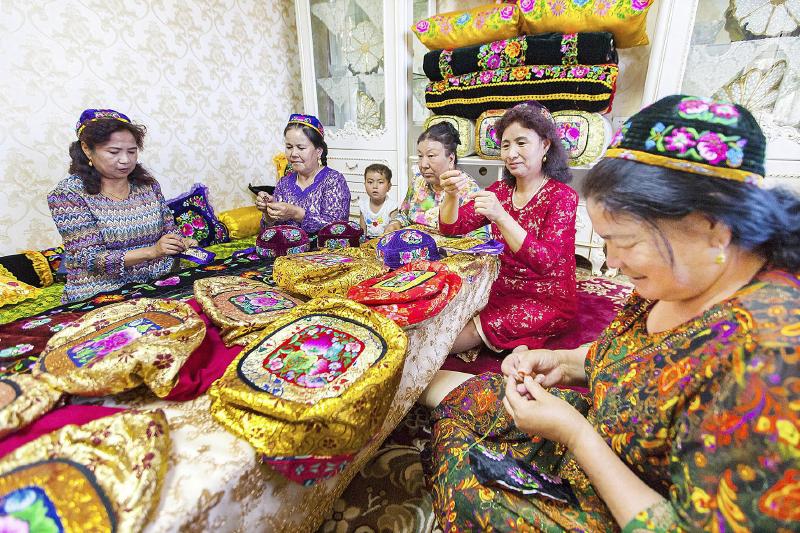
Xinjiang offers visitors all kinds of special local products. They are symbols of ethnic peoples, of which Xinjiang jade is well known all over the world. There are white jade, black jade and jadeite from Hotan, Tianshan jade from Hami and Manas, crystal and citrine from Qitai and Kizilesu, of which the Hotan jades are the best. Therefore Hotan jades used to be paid tributes or transported to inland China as commodity in ancient times. The suet jade, the best kind of the white jade, is gentle and purely white as its name “suet” suggests.
The costumes of ethnic peoples feature sharp color contrast and well-knit and exquisite designs. The Etles satin and embroidered hats are most favorites. In Xinjiang, especially in the southern Xinjiang, the Etles satin is the most favored silk material for making tar yopka (a cylindrical skirt) by the Uygur women. They believe that this romantic satin brings spring to human beings like the cuckoo does. The Uygur people, both old and young, men and women, are fond of wearing the four-or five-angled embroidered hats which are not only indispensable ornaments for the everyday life of the Uygurs but also exquisite workmanship. They pick up their hats carefully for festival, weddings and dances at the bazaars where gorgeous embroidered hats are widely available. Nowadays, Uygurs' embroidered hats have been exported as handicrafts.

Uygurs and Kazaks love decorating their rooms with carpets and rugs. Not only can Xinjiang rugs be hung on the walls of the halls, but also can be laid on the floors of the room and on the corridors. Like the Etles satin, Xinjiang rugs serve as both important ornaments for the everyday life of the Uygurs and delicate craftsmanship. Xinjiang rugs are known as “Oriental rugs” due to their exquisite craftsmanship and unique artistic style. It has a 2,000-year history in Xinjiang. Xinjiang rugs enjoy a good reputation on the global market of which Hotan rugs are the most famous, especially the man-made woolen rugs.
Xinjiang has a variety of plants with medical value of which the snow lotus is worldwide rare product. The snow lotus is a specialty and a rare herb produced in Northwest China's Xinjiang Uygur Autonomous Region, Tibet and Yunan and Guzhou Plateaus. In Xinjiang, it grows in the crevices of rocks scattered above the snow line in the mountains of Tianshan, Altai, and Kunlun and Pamirs. Due to the low temperature, the property of snow lotus is lukewarm and tastes a little bit bitter. It helps to stop aches, enrich the blood, and warm the uterus. It is also good for the kidneys. As a bonus, it can increase the sexual vitality of men and adjust any menstruation difficulties for women.
The ethnic people in Xinjiang have a long tradition of making craftworks. Ironware, wooden furniture, earthenware, boots, knit, spin as well as all kinds of instruments are their features, of which Yengisar knives are most distinctive. Produced in Yengisar County, they are made with exquisite skill, and coming in beautiful shapes and delicate designs that display the unique Uygur style. The Yengisar enjoy a great fame and tourists are willing to purchase with pleasure for friends or as souvenirs. Moreover, leather products in Xinjiang are in good quality. The leather clothes and wooden sweater are popular.




